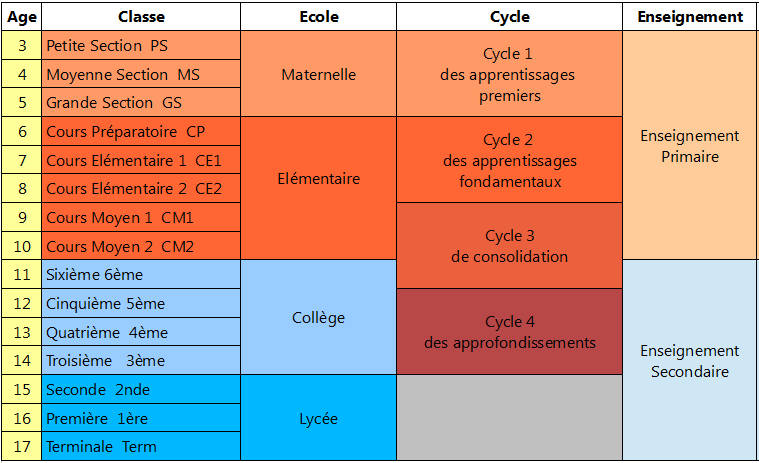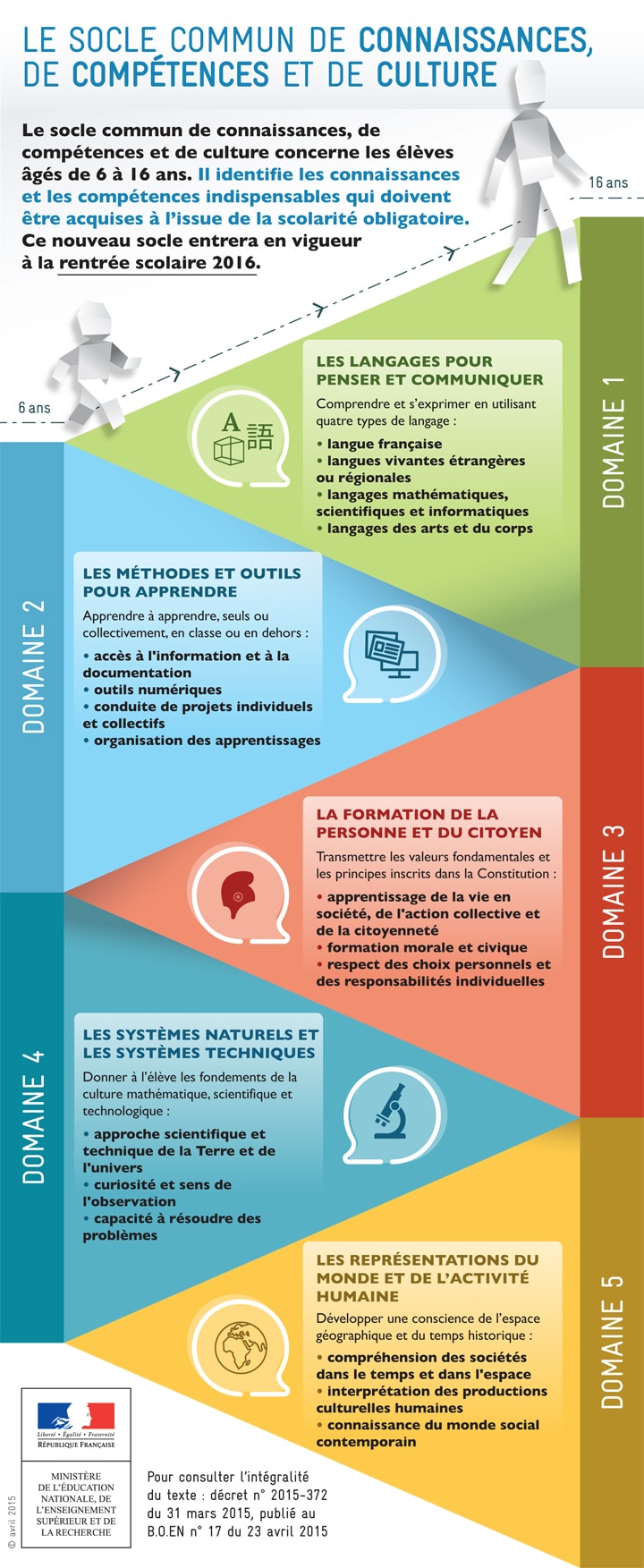Education principles
The French School of Tashkent provides education from Preschool (2 years old) to Grade 12. It is fully accredited by the French Board of Education for Primary levels (Preschool to Grade 5). The Secondary Section operates under an agreement signed with CNED (Centre National d’Enseignement à Distance – National French distance-learning Center).Whatever the grade, the teaching and learning contents are aligned with the French National Curriculum .
AEFE (Agence pour l’Enseignement Français à l’Etranger – Agency for French Education Overseas) is operated under the supervision of the French Ministry of Foreign Affairs and International Development; it monitors and facilitates a network of 495 accredited French schools in 137 countries in 2017.
The CNED (Centre National d’Enseignement à Distance – National French distance-learning Center), under the authority of the French Ministry of National Education, Higher Education and Research, is the leading lifelong education operator in Europe and in the Francophone world with about 2200 registered students.

School is compulsory in France from 6 to 16 years. This period is divided into 4 cycles and allows students to acquire a common base of knowledge and skills.
Learning cycles
• cycle 1 – early learning cycle: TPS, PS, MS, GS
• cycle 2 – foundation cycle: CP, CE1 and CE2
• cycle 3 – reinforcement cycle: CM1, CM2 and 6ème
• cycle 4 – development cycle: 5ème, 4ème, 3ème
The Common Core of Knowledge and Skills
The Common Core of Knowledge and Skills constitutes a framework for developing the curriculum for primary and lower secondary education.The text presents the set of values, knowledge, languages and practices that need to be mastered in order for each pupil to successfully complete his or her schooling, continue his or her education, build his or her personal and professional future and be a successful member of society, such as openness to others, curiosity, creativity, self-respect to other people. It sets out the minimum standards to be attained by all by the end of compulsory schooling:
• Mastering the French language
Absolute priority is the ability to read and understand various texts, the quality of written and oral expression, the learning of spelling and grammar, the daily enrichment of vocabulary. At the French School of Tashkent, all courses are taught in French.
• The practice of a foreign language
The student must be able to understand a brief oral statement as well as a short and simple written text, to be understood, spoken and written using common expressions. At the French School of Tashkent, children learn two foreign languages in Primary: English from Preschool, to which Russian is added from Grade 1.
• The main elements of mathematics and scientific and technological knowledge
In mathematics, using calculation and geometry, the student learns to solve math problems that involve a need for reflection and logical reasoning. In science and technology, students learn about the structure and functioning of the Earth and the Universe, matter and its physical and chemical properties, energy, living characteristics (cell, biodiversity, evolution of species), design, construction and operation of technical objects. Our students are introduced to the inquiring process while acquiring knowledge and learning to act from a perspective of sustainable development. At the French School of Tashkent, Primary teachers can exchange subjects according to their speciality. Secondary students benefit from a specialist teacher in each subject.
• Technology
The Computer and Internet Certificate (B2i) confirms the mastery of information and communication technologies. At the French School of Tashkent, the library has a computer for 2 students on average.
• Humanities
Humanities contribute to the formation of judgment, taste and sensitivity and allow the acquisition of landmarks: in history (founding events), in geography (landscapes, territories and populations), in literature and art (major masterpieces). An sense-based approach to art works initiates the student into the history of art. He also engages in individual artistic practices.
• Social and civic skills
The aim is to understand, as an individual and as a citizen, the basic rules of life in society and to implement them in school. The student acquires benchmarks in several areas: the rights and duties of a citizen, the concepts of responsibility and freedom and the link between them, the principles of the rule of law, the functioning of the government institutions, the State and of the European Union.
• Autonomy and initiative
Autonomy and initiative are built throughout the schooling, in each subject and in each school activity. One learns to: be independent in work, engage in a project and carry it out (create a presentation, seek an internship, join a club or an association, work as a team), select course choices and plan future education and career. By developing these skills, students give themselves the means to succeed and to adapt to the development of their personal, social and professional lives.

